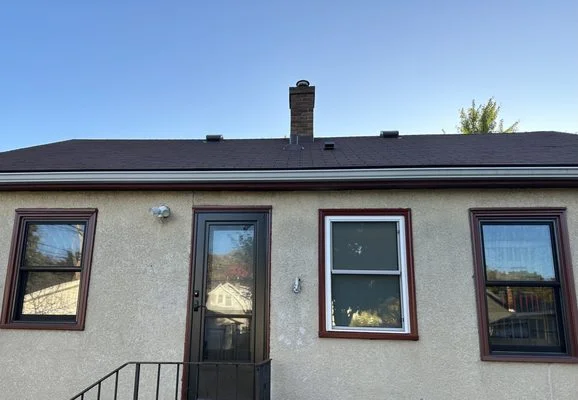The Ghost in the Machine: Deconstructing the Minnesota Rusco Collapse
The abrupt failure of a business often resembles a slow, grinding decay. Sales decline, negative reviews accumulate, and the end arrives not with a bang, but with a final, wheezing sigh. The closure of Minnesota Rusco was not that. This was different. This was the institutional equivalent of a person being there one moment and gone the next, leaving behind nothing but a half-empty coffee cup and a ghost on the security cameras.
For customers like Kari and Jeremy Frahm, the signal of failure wasn't a letter in the mail or a somber news report. It was silence. It was the absence of a work crew on a Tuesday morning, a silence that cost them nearly $48,000. Their discovery, made through a frantic Google search, is a painfully modern post-mortem; headlines like Remodeling company Minnesota Rusco closes, leaving employees & customers hanging soon confirmed their fears. One day, Minnesota Rusco is a dependable local brand with a memorable jingle, a company prominent enough to sponsor the Minnesota Vikings. The next, it’s a digital phantom, its phone lines dead, its website a hollow shell.
The immediate financial fallout is staggering. The Frahms’ loss is just one component of a much larger figure. A competitor, TWS Remodeling, has referenced a backlog of unfinished projects totaling some $15 million. That isn't just a number; it represents a constellation of shattered household budgets and trust. It’s the kitchen remodel half-finished, the new windows paid for but never delivered, the dream project turned financial nightmare. For the employees and salespeople, it was a sudden professional eviction, leaving them scrambling not just for new jobs, but for answers.
But to focus solely on the local implosion is to miss the larger, more clinical narrative at play. This isn’t just the story of a Minnesota contractor failing. It’s the story of a subsidiary being switched off. Minnesota Rusco was owned by Renovo, a parent company based out of Dallas, Texas. And this is the part of the report that I find genuinely telling: Rusco wasn’t an outlier. It was one of at least six similar companies under the Renovo umbrella to be shuttered in the same fashion. This wasn't a slow business failure; it was a synchronized, multi-state shutdown.

Goodwill vs. Corporate Strategy
In the wake of the collapse, a local competitor, TWS Remodeling, has stepped forward. Their offer is a textbook example of community-minded capitalism. They’ve pledged to honor 50% of the contract value for abandoned Rusco customers, aiming to restore faith in local contractors. The owner’s sentiment is admirable: "It's not about money right now. It's about taking care of people." He hopes to break even, a noble goal given the circumstances.
But let's be precise. This gesture, however commendable, is a bandage on a wound inflicted by a far more powerful and detached entity. TWS is attempting to absorb a fraction of a $15 million problem created by a corporate decision made hundreds of miles away. It’s like a single neighborhood watch group trying to police a city after the entire municipal force has been furloughed overnight. The scale of the solution doesn't match the scale of the problem.
This is where the analysis must pivot from the emotional to the structural. The actions of Renovo suggest a coordinated deleveraging event. Shutting down six subsidiaries simultaneously isn’t a sign of isolated market struggles; it’s a strategic choice. The speed and silence are hallmarks of a private equity playbook, designed to cauterize financial bleeding and jettison liabilities (customer deposits, contractor payments, employee salaries) with maximum efficiency. What looks like chaos on the ground in Minnesota was likely a very orderly process on a spreadsheet in Dallas.
The core question then becomes: was this an unavoidable collapse or a controlled demolition? Did Renovo attempt to salvage these businesses, or were they stripped for parts and then scuttled? We don't have access to their internal financials, but the pattern of behavior strongly suggests the latter. The lack of communication, the absence of a managed wind-down or bankruptcy protection for customers—it all points to a calculated decision to simply walk away. This will inevitably trigger a wave of `minnesota rusco lawsuit` filings, but suing a ghost corporation owned by a distant parent company is a long and often fruitless endeavor. Where does the liability truly end?
A Calculated Default
Ultimately, the story of Minnesota Rusco isn't about a jingle or a bad quarter. It's a case study in modern corporate structure and the profound vulnerability it creates at the local level. Customer deposits weren't seen as a trust; they were an entry in an accounts payable ledger, a liability that could be nullified by unplugging the server. The company's public-facing persona, complete with its Vikings sponsorship and years of accumulated goodwill from positive `minnesota rusco reviews`, served as a fragile shell over a hollow core, controlled entirely by an invisible hand. The goodwill of TWS Remodeling is real and laudable, but it’s a fundamentally analog solution to a digital-age financial problem. One company is trying to rebuild trust one customer at a time, while the other erased an entire business operation with what likely amounted to a single conference call. The asymmetry is the entire story.
